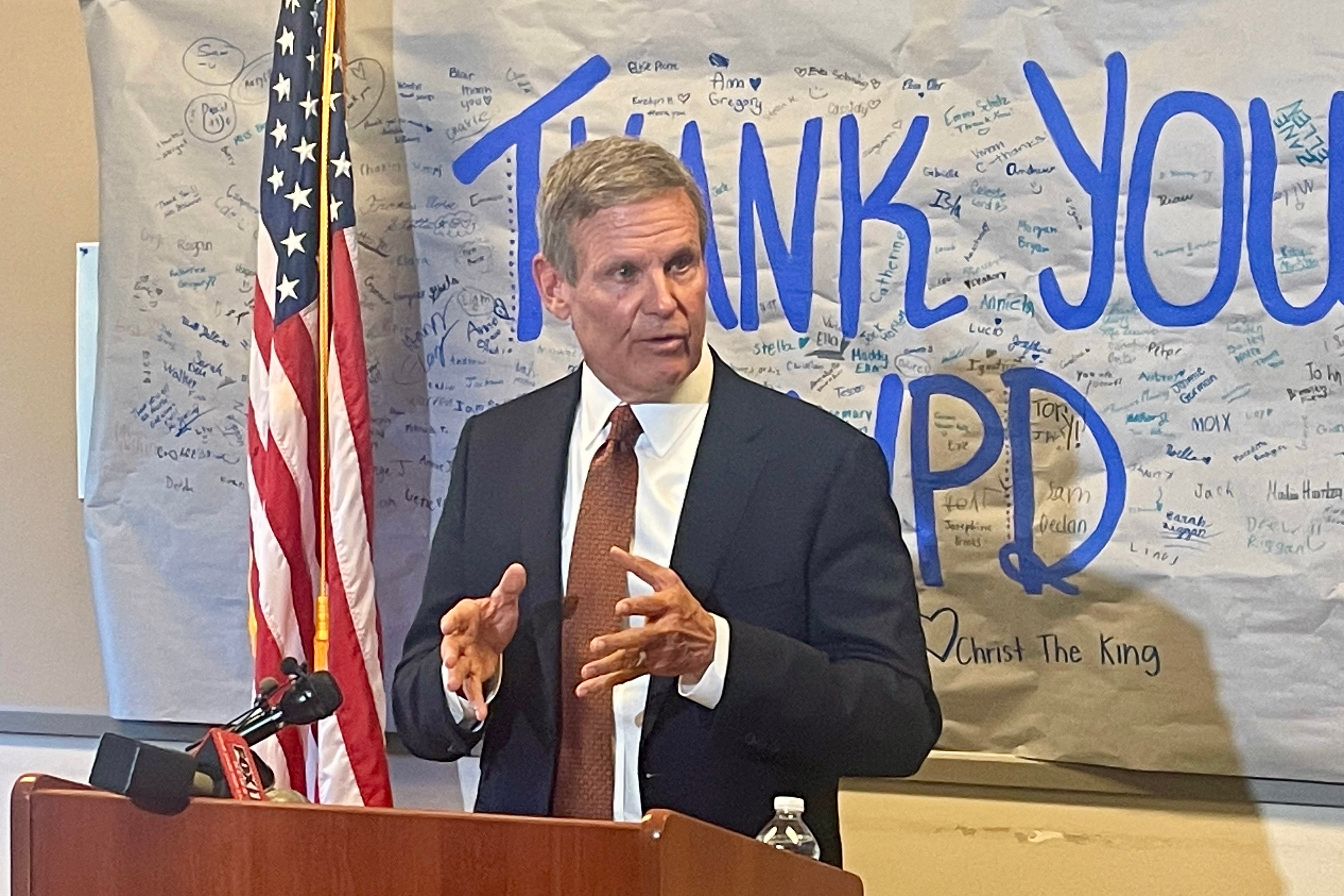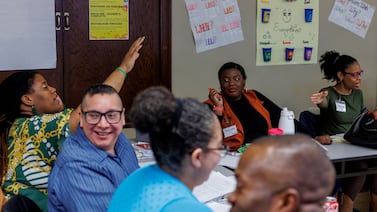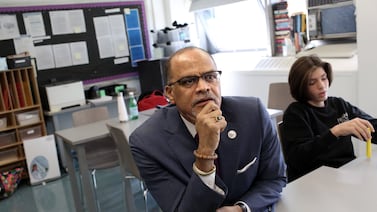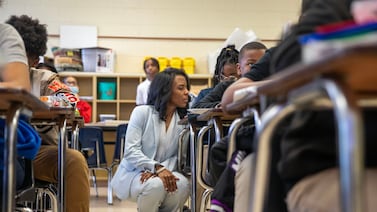Gov. Bill Lee called Tuesday for a new Tennessee law to help keep guns out of the hands of people deemed at risk of hurting themselves or others, his first full embrace of a gun reform measure in one of the nation’s most gun-friendly states.
Lee said that he’s asked legislative leaders to create and pass new “order of protection” legislation that strengthens existing law designed to protect domestic violence victims. He wants the GOP-controlled General Assembly to deliver a broader bill to his desk in the next month, before adjourning for the year.
Later Tuesday, the governor signed an executive order to strengthen background checks for buying firearms in the state.
The announcements came two weeks after a shooter killed six people at a Nashville school and one day after another mass shooting at a bank in neighboring Kentucky.
“We can’t stop evil, but we can do something,” Lee said. “And when there is a clear need for action, I think that we have an obligation … to remind people that we should set aside politics and pride and accomplish something that the people of Tennessee want us to accomplish.”
Lee’s call to action comes after thousands of Tennesseans rallied for stricter gun laws during daily protests at the State Capitol since the March 27 tragedy left three children and three staff members dead at The Covenant School, a private Christian campus serving about 200 children.
The shooter, who authorities later said was seeing a doctor for an “emotional disorder,” was shot and killed by police on site.
Authorities in Louisville are still investigating what led an employee of Old National Bank to pull out a rifle and open fire in his workplace on Monday, killing five people and injuring nine others.
“What happened in Kentucky yesterday might be averted by a piece of legislation that we’re talking about delivering today,” said Lee, who said he spoke with that state’s governor, Democrat Andy Beshear.
The two mass shootings hit close to home for both leaders. Lee’s wife, Maria, who is a former teacher, was a friend and former co-worker of two of the adult victims at Covenant. And Beshear said he lost one of his closest friends.
Extreme risk protection orders allow law enforcement to intervene and temporarily take away a person’s weapons if a judge deems that person is at risk of hurting himself or others. Florida passed a so-called red flag law allowing such protection orders after a shooter killed 17 students and staff at Marjory Stoneman Douglas High School in Parkland, Florida, in 2018.
Lee did not use the phrase “red flag law” in describing his desire for new ”order of protection” legislation.
Instead, he called his proposal the next step beyond his comprehensive school safety package, which overwhelmingly passed the House last week and is expected to clear the Senate in the next week.
After the Covenant shooting, Lee’s administration revised the package and his proposed budget to include more than $200 million more next year to place an armed security guard at every Tennessee public school, boost physical security at public and private schools, and provide additional mental health resources for Tennesseans. Currently, about two-thirds of the state’s public schools have a law enforcement officer on site.
Lee held his press conference at a Nashville police precinct after meeting earlier with officers who responded to the active-shooter alert at Covenant.
“Protective orders are led by law enforcement,” Lee said. “They have a high standard burden of proof. There is due process.”
The governor acknowledged that passing an order-of-protection law in the legislature could be difficult — a key Senate committee voted last week to defer action on any gun-related legislation until next year — but said he is hopeful for bipartisan support “to get this done.”
“I’m one that believes that really difficult circumstances can bring about really positive outcomes,” Lee said, adding: “I certainly believe it’s that time.”
Democrats already have proposed several pieces of legislation aimed at gun reforms, including one on expanded protective orders. Lt. Gov. Randy McNally, the Senate’s top Republican leader, said after the Covenant shooting that he’s open to that approach, as long as it includes protections against false or fraudulent reporting.
House Speaker Cameron Sexton raised similar concerns on Tuesday.
“As we look at mental health orders of protection, they must have a level of due process, protections from fraudulent claims, and a quick judicial hearing for individuals who pose imminent threats,” Sexton said in a statement.
But Senate Minority Leader Raumesh Akbari expressed no reservation. The Memphis Democrat praised Lee for prioritizing legislation to restrict gun access and curb gun violence.
“We are ready to work with the governor,” she said, “and we urge our Republican colleagues in the legislature to move quickly to put gun reform legislation on his desk.”
Gun violence is the leading cause of death for children in America.
After a mass shooting at an elementary school in Uvalde, Texas, Congress passed a law to provide federal funding for states that enact red flag laws. And in February, President Joe Biden announced that the Justice Department would give $231 million to states to implement crisis intervention programs like red flag laws.
Red flag laws are relatively new, and their impacts are still being studied.
In Colorado, where a law went into effect three years ago, nearly 400 cases have been filed so far seeking protective orders against gun owners, according to a review by Colorado Public Radio. Of those, more than a dozen respondents had allegedly talked about carrying out mass shootings in places like grocery stores, theaters, and neighborhoods, with varying levels of planning. More than a dozen others talked about a “suicide by cop” or otherwise ambushing police officers, and one had threatened to assassinate political leaders.
In most cases, the person was reported to own multiple guns, in one case as many as 31 firearms.
Marta Aldrich is a senior correspondent and covers the statehouse for Chalkbeat Tennessee. Contact her at maldrich@chalkbeat.org.








